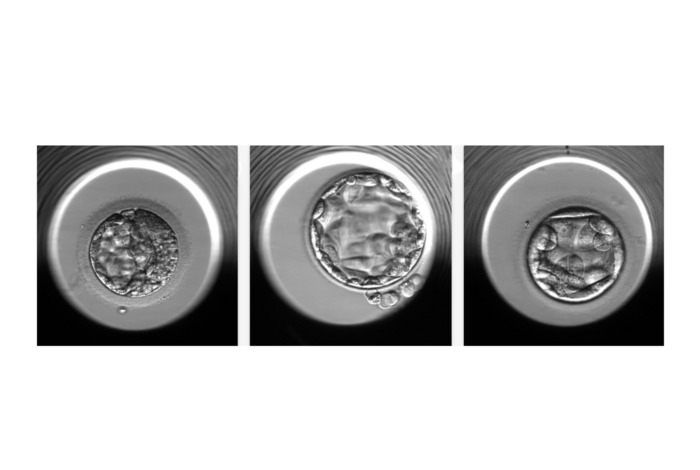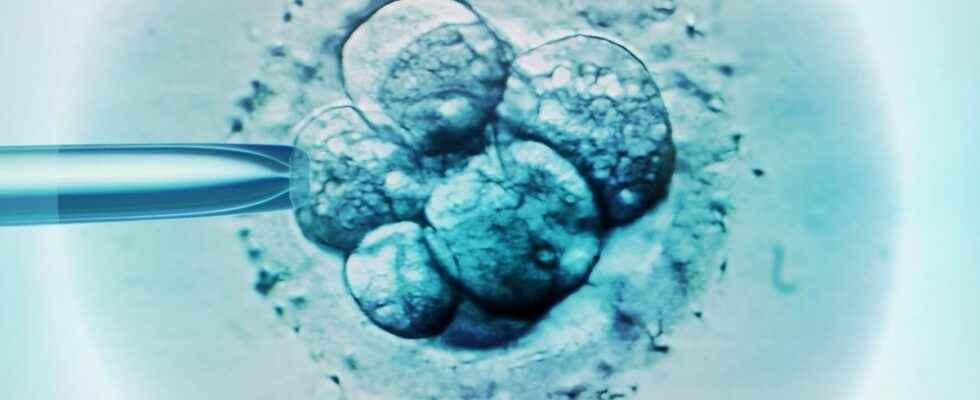Published on
Updated
Reading 2 mins.
Marie Lanen
Head of parenting section (baby, pregnancy, family)
An artificial intelligence algorithm called STORK-A helps predict aneuploidy (abnormal number of chromosomes), one of the reasons embryos from in vitro fertilization (IVF) fail to implant . Doctissimo takes stock of this discovery that brings hope for many couples undergoing assisted reproduction procedures.
In France, in 2019, 3.7% of children were conceived by PMA (medically assisted procreation), including 2.9% by IVF and 0.8% by artificial insemination. According to data from the Biomedicine Agency (2019), the pregnancy rate after IVF is 22.5%. A rate that doctors hope to increase with new techniques. Moreover, an American team has developed an artificial intelligence algorithm to determine with an accuracy of about 70% whether the embryo resulting from IVF has a normal or abnormal number of chromosomes. This condition called aneuploidy is one of the main reasons that IVF embryos fail to implant in the uterus and result in pregnancy.
PMA and IA: an algorithm that would avoid embryo biopsy
Currently, aneuploidy involves biopsy-type sampling and genetic testing of embryo cells, an invasive procedure for the latter… The new STORK-A algorithm works by analyzing images of the embryo under a microscope 5 days later fertilization while integrating other essential data such as the age of the mother and the appearance of the embryo (provided by the clinic that performed the IVF). A non-invasive technique that is more precise than the human eye alone. According to the performances analyzed, the accuracy of the algorithm in predicting aneuploid “euploid” embryos compared to normal chromosomes is around 70%. “This is another great example of how AI can potentially transform medicine. The algorithm transforms tens of thousands of embryo images into AI models that can ultimately be used to help improve medicine. effectiveness of IVF and to further democratize access by reducing costs,” said Dr Olivier Elemento, co-author and director of the England Institute for Precision Medicine and professor of physiology and biophysics and computational genomics. in Computational Biomedicine at Weill Cornell Medicine.

NO to diets, YES to WW!
Videos to visualize embryonic development
The team that developed this artificial intelligence plans to use embryo development videos to refine their algorithm.
“By using video classification, we can take advantage of temporal and spatial information about embryo development, and we hope this will allow the detection of developmental patterns that distinguish aneuploidy from euploidy with even greater precision. high,” says Josue Barnes, a doctoral student at the Weill Cornell Graduate School of Medical Sciences.
The objective of the research team is to get closer to the results obtained through genetic testing, which is more than 90% accurate. An “ambitious objective” according to them, at the service of couples seeking to have children. Note, in France, in 2021, nearly 6,800 assisted reproduction projects were counted by the bioethics law monitoring committee. This algorithm could represent hope for all those who embark on this battle for life.
